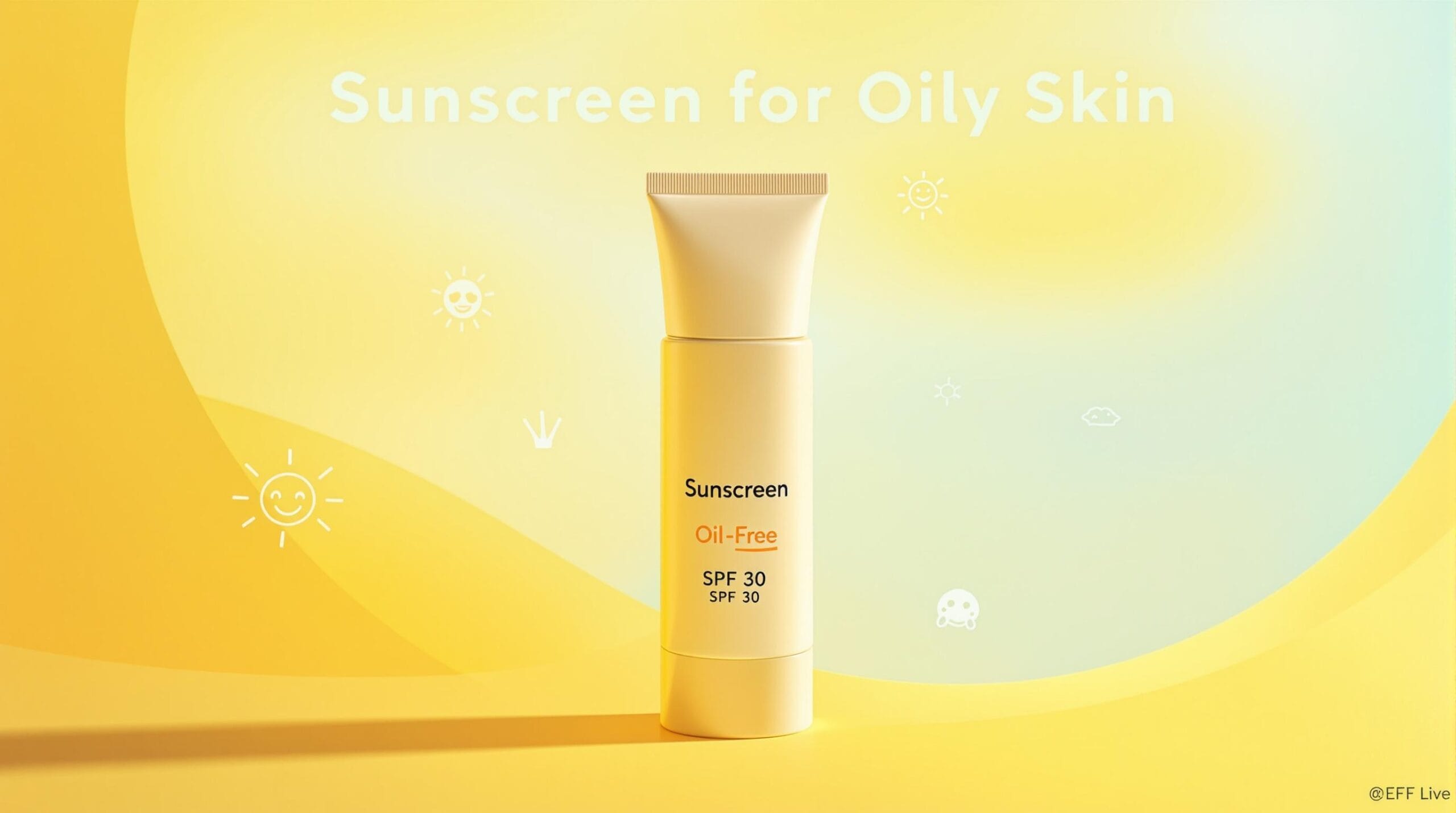
Sunscreens are essential in any skincare routine, providing a guard against harmful UV rays that can cause skin damage and premature aging. For those with oily skin, the choice of sunscreen becomes even more critical. Proper sun protection can prevent issues like sunburn and hyperpigmentation, while also helping to maintain overall skin health. Using the right sunscreen daily can significantly reduce the risk of skin cancer and keep your complexion looking its best.
Despite common misconceptions, sunscreen does not have to feel heavy or greasy. Modern formulations cater to different skin types, minimizing shine and discomfort. Embracing a sunscreen designed for oily skin ensures you get the most out of its benefits, without exacerbating any skin conditions.
2. Identify Your Skin Type
What’s Your Skin Type?
Determining if you have oily skin is the first step toward selecting the perfect sunscreen. Oily skin typically presents with excess sebum production, leading to a glossy or shiny appearance, especially in the T-zone. Pores may appear enlarged and can be more prone to acne and blackheads.
Signs Of Oily Skin
Individuals with oily skin often notice persistent shine, frequent breakouts, and difficulty keeping makeup in place throughout the day. Understanding these signs helps in choosing skin care products that won’t exacerbate oiliness or clog pores.
How Oily Skin Affects Sunscreen Choices
Oily skin requires lightweight, non-comedogenic sunscreen options that minimize shine and prevent breakouts. Opting for oil-free or gel-based sunscreens can help maintain a matte look while offering essential sun protection.
3. Ingredients That Matter
Must-Have Ingredients for Oily Skin
For oily skin, ingredients such as zinc oxide and titanium dioxide offer effective protection without clogging pores. These minerals provide physical barriers against UV rays and are known for being gentle on sensitive skin. Additionally, hyaluronic acid is a great hydrating ingredient that attracts moisture without leaving an oily residue.
Ingredients to Avoid
Avoid comedogenic ingredients, which can block pores and cause breakouts. Heavy oils and perfumes often lead to an increase in oil production and can cause skin irritation. Check labels for components like isopropyl myristate and lanolin, which are known to cause such issues in oily skin.
How to Read Labels Effectively
Understanding ingredient lists is crucial. Look for labels stating “oil-free” or “non-comedogenic” to ensure the sunscreen is suitable for oily skin. Recognizing beneficial ingredients and problematic ones ensures you make informed purchases tailored to your skin’s needs.
4. Types of Sunscreen: Which is Right for You?
Physical vs. Chemical Sunscreens
Physical sunscreens, often using zinc oxide or titanium dioxide, sit on the skin’s surface and reflect UV radiation. They are ideal for sensitive or acne-prone skin as they cause fewer reactions. Chemical sunscreens absorb UV rays, transforming them into heat and releasing them from the skin, often offering a lighter texture but may irritate sensitive skin.
Gel vs. Cream vs. Spray
Gel sunscreens are excellent for oily skin as they absorb quickly and leave a matte finish. Creams might be heavier, but those labeled non-greasy can still work well. Sprays provide convenience but require careful application to ensure full coverage. Each type caters to different preferences and skin responses, so testing to find the best fit is recommended.
5. Tips for Applying Sunscreen like a Pro
How Much is Enough?
Apply about a teaspoon of sunscreen to your face and enough to cover all exposed areas of your body thoroughly. Even application ensures sustained protection throughout the day.
When to Apply for Maximum Protection
Apply sunscreen at least 15 minutes before sun exposure to allow it to bind with the skin. Reapply every two hours, or more often if sweating or swimming.
Layering with Moisturizers and Makeup
Apply sunscreen as the last step in your skincare regimen, before applying makeup. Use products compatible with sunscreen to prevent pilling and ensure uniform protection and appearance.
6. Frequently Asked Questions
Can Sunscreen Cause Breakouts?
Selected correctly, sunscreen should not cause breakouts. Opt for products that specify non-comedogenic and oil-free on their labels to mitigate the risk of acne.
How Often Should I Reapply Sunscreen?
Reapplication is key. Every two hours is ideal, especially if you are outside or active. This practice maintains protection and ensures continued effectiveness.
Is SPF 30 Enough? A Quick Look at Sunscreen Strengths
SPF 30 generally provides adequate protection, blocking about 97% of UVB rays. For oily skin, this level balances protection and breathability, but for prolonged outdoor activities, a higher SPF could be beneficial.
7. Top Sunscreens to Try for Oily Skin
Best Brands to Consider
Brands like Neutrogena, La Roche-Posay, and EltaMD offer highly recommended sunscreens for oily skin, praised for their lightweight and effective formulas. Consumer reviews often highlight their ability to control shine while ensuring strong sun protection.
Price Point:
Quality sunscreen is available at various price points. Drugstore options like Neutrogena offer affordability, while La Roche-Posay provides premium quality for a higher price. Regardless of budget, there’s an option that meets sun protection needs without compromising on formula quality.
8. Conclusion: A Brighter Future for Your Skin
Choosing the right sunscreen is more than a choice—it’s a commitment to your skin’s health. By selecting products designed for oily skin, you protect your skin from sun damage without worsening oily conditions. Test different products, share your experiences, and enjoy your best skin while staying safe.
The Shocking Truth: Can Your Sunscreen Be the Hidden Cause of Acne? >>>
Is It Safe to Slather Your Face Sunscreen All Over Your Body? You Won’t Believe the Answer! >>>
Is Your Sweat Sabotaging Your Sunscreen? Find Out the Shocking Truth! >>>
The Shocking Truth About Moisturizer and Sunscreen: Can You Really Use Them Together? >>>
The Surprising Truth: Should You Apply Sunscreen Before or After Moisturizer? Find Out Now! >>>
Revealed: The Shocking Truth About Applying Sunscreen Directly on Your Face! >>>
Unlock the Secret to Flawless Skin: Say Goodbye to Oily Residue After Sunscreen! >>>
The Shocking Truth: How Long Does Your Sunscreen REALLY Last? >>>
The Ultimate Trick To Effortlessly Banish Sunscreen From Your Face! >>>
Is It Safe to Put Moisturizer Over Sunscreen? The Shocking Truth Revealed! >>>







